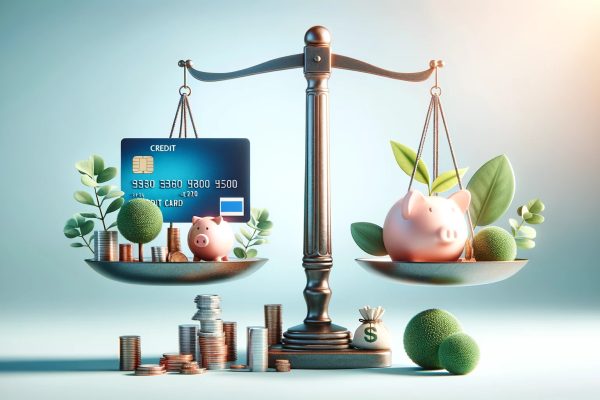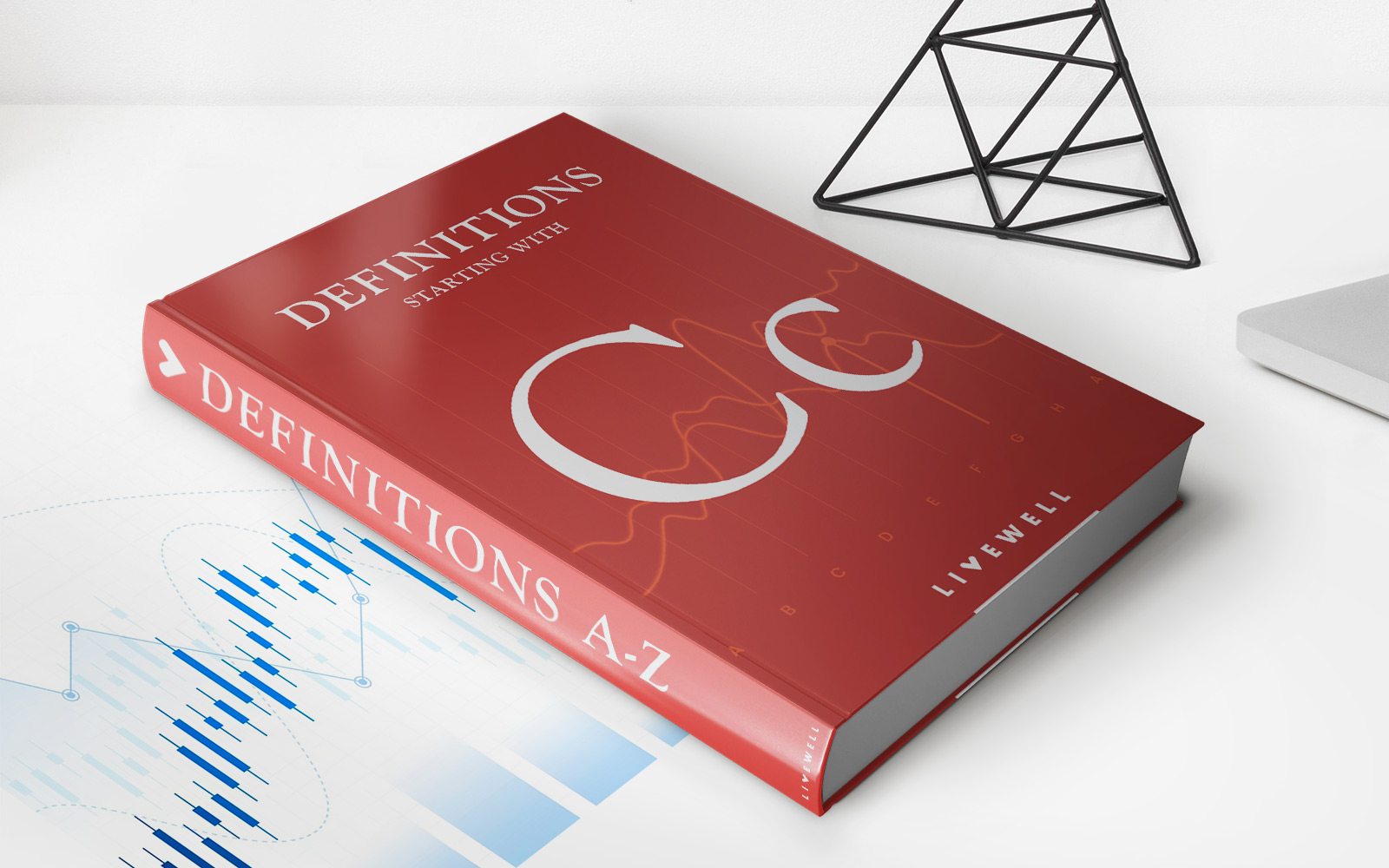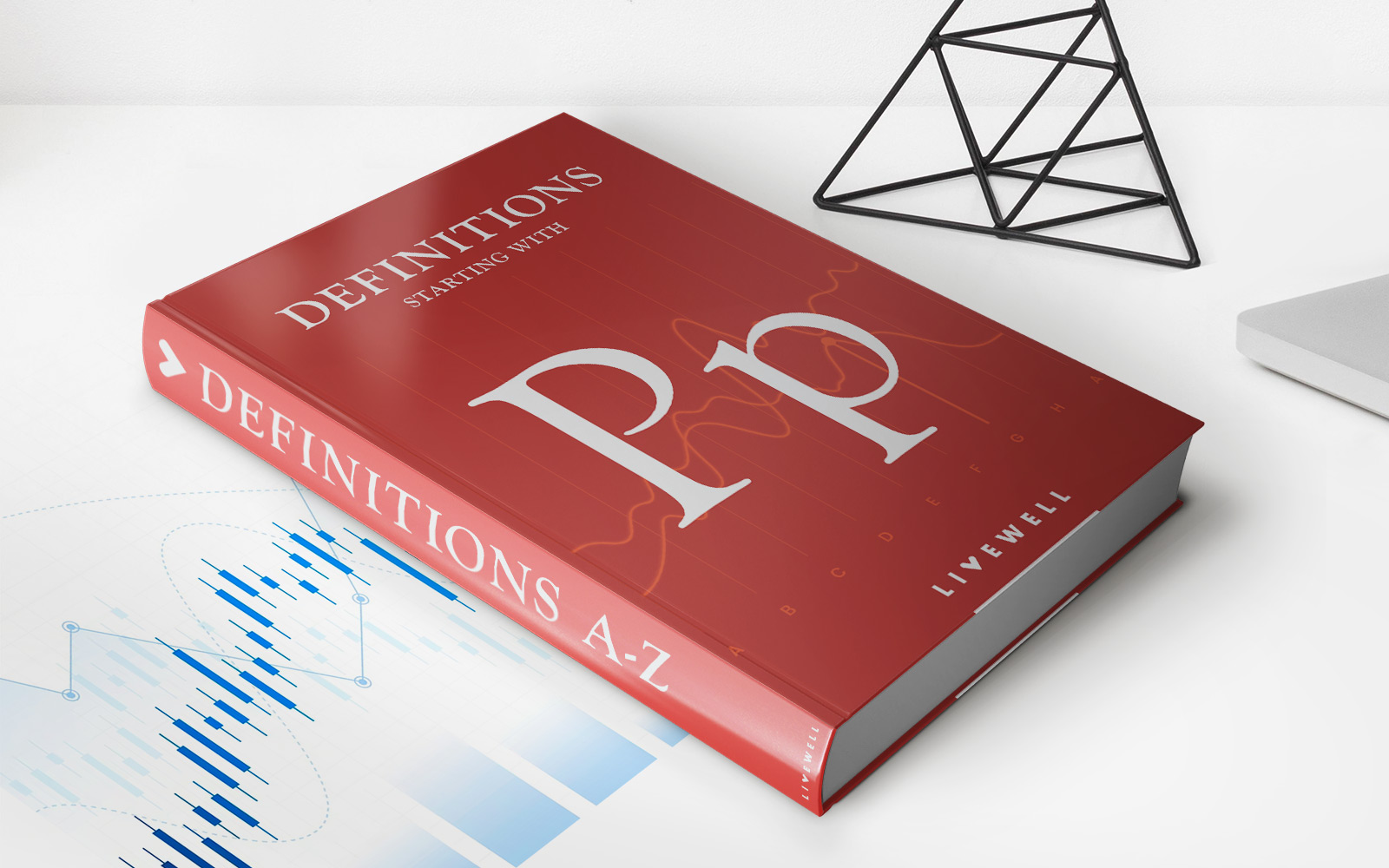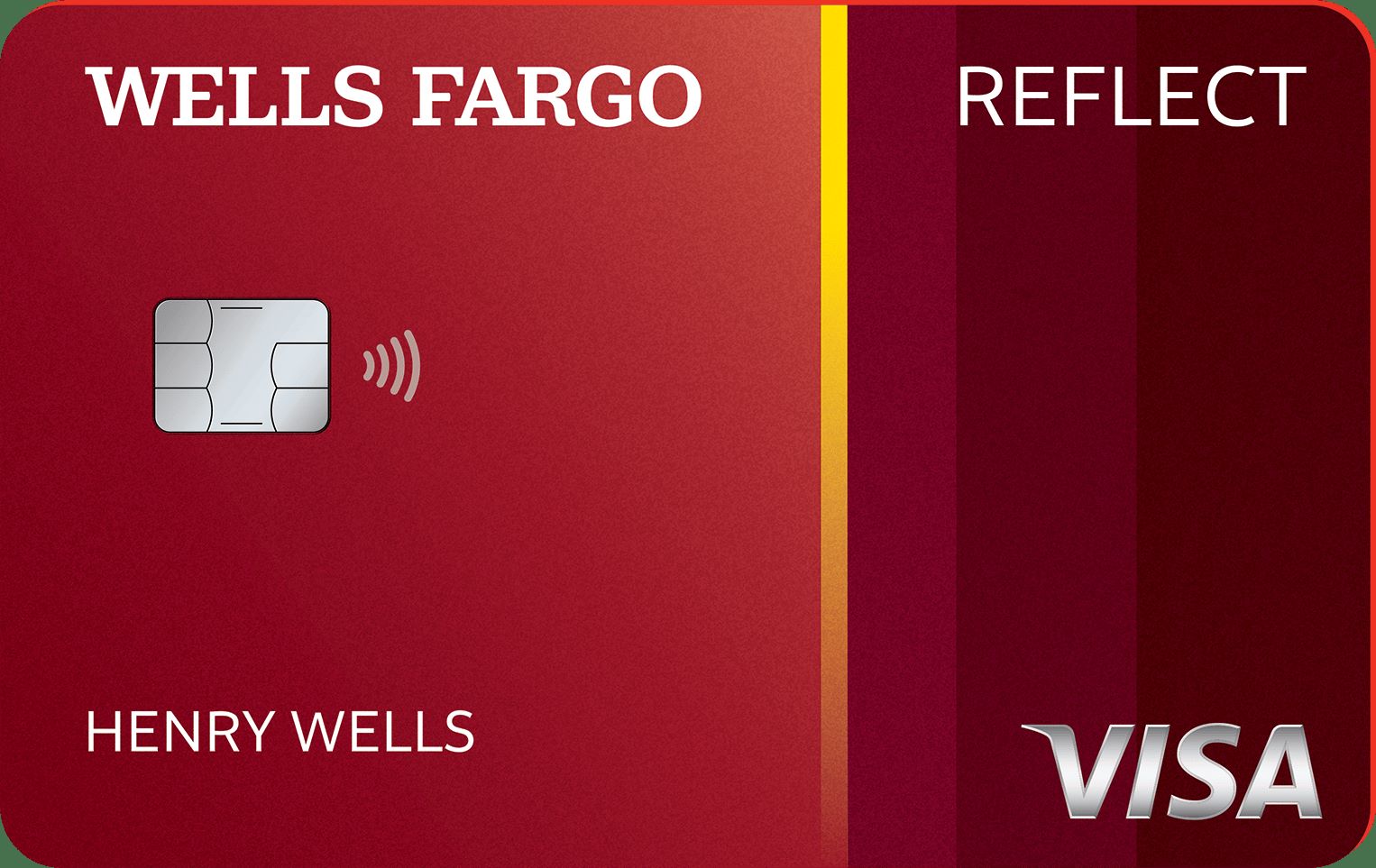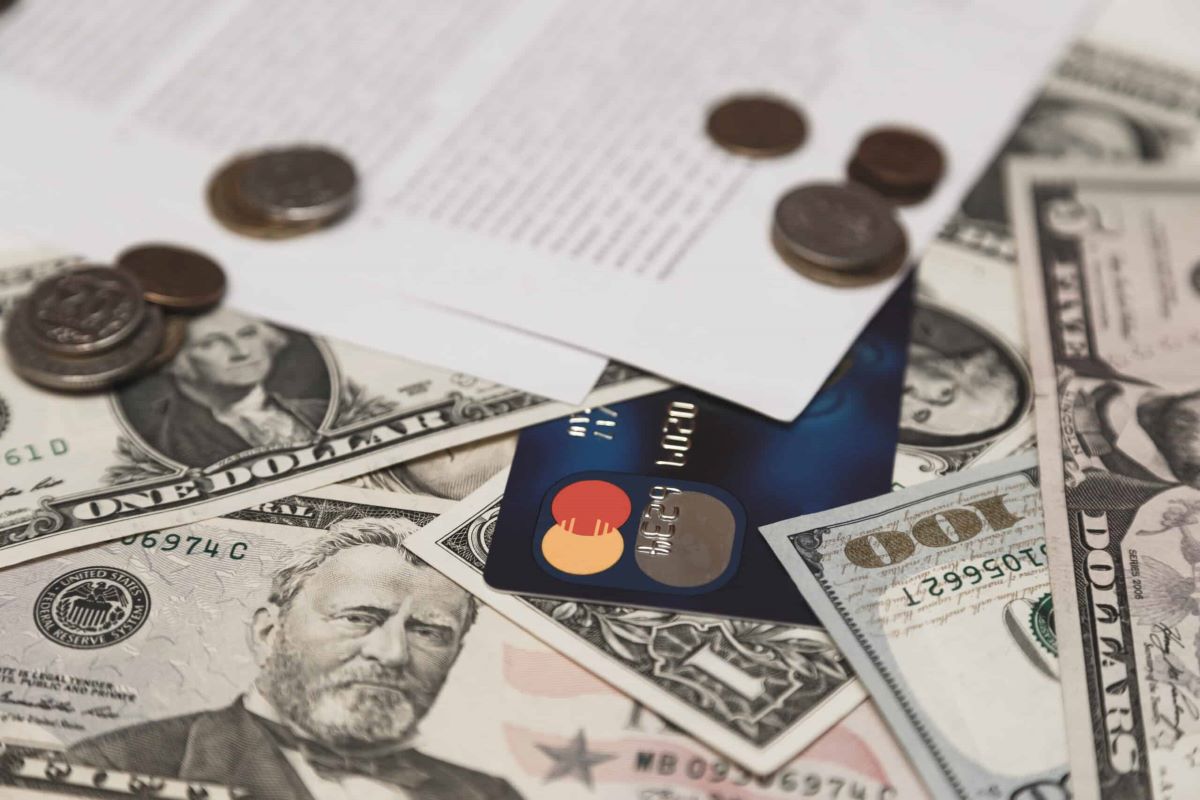

Finance
How To Use Credit Responsibly
Modified: March 1, 2024
Learn how to use credit responsibly and manage your finances effectively in this comprehensive guide. Achieve financial stability and make informed decisions to secure your future.
(Many of the links in this article redirect to a specific reviewed product. Your purchase of these products through affiliate links helps to generate commission for LiveWell, at no extra cost. Learn more)
Table of Contents
Introduction
When it comes to managing your personal finances, credit plays a vital role. Whether you’re applying for a loan, renting an apartment, or even getting a new job, your credit history and score can have a significant impact. Building and maintaining good credit is essential for a stable financial future.
In this article, we will explore the importance of using credit responsibly and the steps you can take to establish and manage your credit effectively. By understanding how credit works and making informed decisions, you can avoid common pitfalls and set yourself up for financial success.
Before we dive into the details, let’s clarify what exactly credit is. Credit is a tool that allows you to borrow money with the promise of repayment in the future. It can take the form of credit cards, loans, or lines of credit. Creditors assess your creditworthiness by looking at your credit history, which includes information about your payment habits, debts, and other financial transactions.
Building good credit is not an overnight process. It requires time, discipline, and responsible financial habits. However, the benefits of having a strong credit profile are substantial. From securing favorable interest rates on loans to getting approved for rental applications, good credit can open doors and save you money in the long run.
In the following sections, we will delve into the different steps you can take to establish and manage credit responsibly. It is important to remember that credit is a tool and, like any tool, it can be used wisely or misused. By understanding how credit works and following best practices, you can harness its power to improve your financial well-being.
Understanding Credit
Before diving into the world of credit, it’s important to have a clear understanding of what it entails. Simply put, credit is a financial arrangement that allows you to borrow money with the promise to repay it in the future. This is typically done through a credit card, loan, or line of credit.
When you use credit, you essentially borrow money from a creditor or lender, with the understanding that you will repay the borrowed amount, plus any applicable interest or fees, over a specified period of time. Creditors assess your creditworthiness by evaluating your credit history, which includes information about your payment habits, outstanding debts, and other financial obligations.
One of the key components of credit is your credit score. This three-digit number, usually ranging from 300 to 850, provides a snapshot of your creditworthiness. Lenders and creditors use your credit score to determine the level of risk you pose as a borrower. A higher credit score typically indicates that you are a responsible borrower, making it easier for you to obtain credit at favorable terms.
It’s important to note that there are different types of credit. Revolving credit, such as credit cards, allows you to borrow up to a certain credit limit and repay any outstanding balances over time. Installment credit, on the other hand, involves borrowing a fixed amount of money and repaying it in fixed monthly installments, such as with a car loan or mortgage.
Understanding how credit works is crucial for making informed financial decisions. It allows you to assess the potential benefits and risks of taking on credit, and to use it to your advantage in building a solid financial foundation.
Now that you have a basic understanding of credit, let’s explore how you can begin the journey of establishing credit responsibly.
Establishing Credit
If you’re new to the world of credit or have limited credit history, it’s essential to establish credit in order to build a strong financial foundation. Here are some key steps to take when it comes to establishing credit responsibly:
- Open a Credit Card: One of the easiest ways to start building credit is by opening a credit card account. Look for a credit card that is designed for individuals with limited or no credit history. Responsible use and timely payments will help you establish credit and demonstrate your ability to manage credit responsibly.
- Apply for a Secured Credit Card: If you’re unable to qualify for a regular credit card, a secured credit card is a viable option. With a secured credit card, you’ll need to put down a refundable security deposit, which serves as collateral for the credit card. By using the card and making timely payments, you can build credit over time.
- Become an Authorized User: Another way to establish credit is by becoming an authorized user on someone else’s credit card account. By being associated with an account in good standing, the positive payment history can help you build credit. However, it’s important to choose a responsible cardholder since any negative activity can also affect your credit.
- Apply for a Small Loan: Taking out a small loan, such as a personal loan or a credit-builder loan, can help establish credit. Make sure to borrow only what you need and can comfortably repay. Making consistent, on-time payments will demonstrate your creditworthiness and improve your credit history.
Remember, it’s crucial to use credit responsibly when establishing credit. This includes making timely payments, keeping your credit utilization low, and avoiding excessive debt. Patience and responsible credit management will go a long way in building a solid credit foundation for your future financial endeavors.
Managing Credit Responsibly
Once you have established credit, it’s important to manage it responsibly to maintain a healthy financial position. Here are some key strategies for managing your credit responsibly:
- Paying Bills on Time: One of the most critical aspects of managing credit is making timely payments on all of your credit accounts. Late payments can negatively impact your credit score and may result in late fees and increased interest rates. Consider setting up automatic payments or reminder alerts to avoid missing any due dates.
- Keeping Credit Card Balances Low: It’s advisable to keep your credit card balances low in relation to your credit limit. This is known as your credit utilization ratio and plays a significant role in your credit score. Aim to keep your utilization below 30% to demonstrate responsible credit usage. Paying off your balances in full each month is the best way to accomplish this.
- Avoiding Excessive Debt: While credit can be a useful tool, it’s important to avoid accumulating excessive debt. Only borrow what you need and can realistically repay. Taking on too much debt can lead to financial stress and make it more challenging to manage your credit effectively.
- Checking and Monitoring Credit Reports: Regularly checking your credit reports from the three major credit bureaus (Experian, Equifax, and TransUnion) is crucial for managing credit responsibly. Reviewing your reports allows you to identify any errors or fraudulent activity and take steps to correct them. You are entitled to one free credit report from each bureau annually, which you can request through AnnualCreditReport.com.
Using credit cards responsibly and making on-time payments will help you maintain a positive credit history. Building a good credit score takes time and consistent effort, but the rewards are worth it. A strong credit profile can qualify you for better loan rates, lower insurance premiums, and even potential job opportunities.
By managing your credit responsibly, you can leverage credit to your advantage and achieve your financial goals.
Paying Bills on Time
When it comes to managing credit responsibly, one of the most crucial aspects is paying your bills on time. Timely bill payments not only contribute to a positive credit history, but they also help you avoid late fees and potential damage to your credit score. Here’s why paying bills on time is essential and some tips to help you stay on top of your payments:
Why is it important?
On-time payment history is a significant factor in determining your creditworthiness. Your payment history accounts for a significant portion of your credit score and showcases your ability to fulfill your financial obligations. Late payments, even by a few days, can negatively impact your credit score and make it more challenging to secure credit in the future.
Furthermore, consistently paying your bills on time demonstrates financial discipline and responsibility. It shows potential lenders or creditors that you are reliable and capable of managing your finances effectively.
Tips for paying bills on time:
- Create a budget: Having a clear understanding of your income and expenses can help you plan your bill payments effectively. With a budget in place, you can allocate funds for timely payments and avoid financial strain.
- Set up automatic payments: Many banks and creditors offer automatic bill payment services. By setting up automatic payments, you can ensure that your bills are paid on time every month. Just be sure to have sufficient funds in your account to cover the payments.
- Use payment reminders: If you prefer not to set up automatic payments, you can use calendar alerts or reminders to ensure you don’t miss any due dates. You can also explore mobile apps that send notifications for upcoming bill payments.
- Organize your bills: Keep track of your bills and their due dates by creating a system that works for you. Whether it’s using a physical folder or a digital tool, having all your bills organized in one place will help you stay on top of your payment schedule.
- Consider electronic statements: Opting for electronic statements instead of paper copies can simplify bill management. Electronic statements are usually delivered via email and can be easily accessed and reviewed.
Paying bills on time is a fundamental aspect of responsible credit management. By prioritizing timely payments, you create a positive credit history and demonstrate your financial reliability. This practice not only benefits your credit score but also sets the foundation for a healthy and sustainable financial future.
Keeping Credit Card Balances Low
One important aspect of managing credit responsibly is keeping your credit card balances low. Your credit utilization ratio, which is the amount of credit you are using compared to your total credit limit, plays a significant role in your credit score. Here’s why it’s important to keep your credit card balances low and some strategies to help you achieve this:
Why is it important?
Keeping your credit card balances low is crucial for several reasons. First, it demonstrates responsible credit usage and financial discipline. Lenders and creditors view individuals with lower credit card balances as less risky borrowers since they are not utilizing a significant amount of their available credit. This can positively impact your credit score and make it easier to qualify for future credit applications.
Additionally, high credit card balances can lead to financial stress and make it difficult to manage your debt effectively. Carrying a large balance on your credit cards can result in hefty interest charges, making it challenging to pay off the debt and potentially leading to a cycle of revolving debt.
Strategies to keep credit card balances low:
- Pay off your balance in full each month: Whenever possible, aim to pay off the entire balance on your credit cards every billing cycle. This allows you to avoid paying interest and keeps your credit utilization ratio low.
- Make more than the minimum payment: If you cannot pay off your credit card balance in full, make sure to pay more than the minimum payment required. By paying more, you’ll reduce your overall balance more quickly, saving on interest charges and improving your credit utilization ratio.
- Create a budget and monitor your spending: Having a budget in place can help you prioritize your expenses and avoid overspending on your credit cards. Track your spending regularly to ensure you are within your budget limits and that you’re not accumulating more debt than you can manage.
- Use credit cards strategically: While credit cards can be a valuable financial tool, it’s essential to use them strategically. Limit your credit card usage to necessary expenses and avoid using them for impulse purchases or unnecessary splurges.
- Contact your credit card provider: If you’re struggling to keep your credit card balances low, consider contacting your credit card issuer. They may be able to offer options like lowering your interest rate or adjusting your credit limit to help you manage your balances more effectively.
Committing to keeping your credit card balances low not only helps you maintain a healthy credit score but also promotes responsible financial habits. By staying mindful of your credit card usage and regularly paying down your balances, you can achieve greater financial stability and set yourself up for long-term success.
Avoiding Excessive Debt
One of the key principles of managing credit responsibly is avoiding excessive debt. While credit can be a useful tool for making purchases and achieving financial goals, accumulating too much debt can lead to financial stress and hinder your financial well-being. Here are some strategies to help you steer clear of excessive debt:
Create a realistic budget:
Developing a budget is an essential step in managing your finances effectively. Determine your income and expenses, and allocate funds for necessary expenses while setting aside money for savings and debt repayment. A budget helps you stay within your means and avoid taking on excessive debt.
Live within your means:
It’s tempting to keep up with the latest trends or spend beyond our means, but doing so can quickly lead to financial trouble. Prioritize your needs over wants and make informed decisions about your purchases. Avoid impulse buying and be mindful of your financial goals.
Pay more than the minimum payment:
When you have debts, such as credit card balances or loans, paying only the minimum amount due will prolong your repayment period and result in paying more interest over time. Whenever possible, make additional payments towards your debt to reduce the principal balance and save on interest charges.
Avoid unnecessary borrowing:
Before taking on new credit or borrowing money, carefully consider if it is absolutely necessary. Avoid using credit to finance non-essential purchases or indulgences. Instead, focus on building an emergency fund to cover unexpected expenses and saving up for major future purchases.
Seek financial assistance if needed:
If you find yourself overwhelmed with debt, seek help from a credit counseling agency or a financial advisor. They can provide guidance on debt management strategies and offer support to regain control over your financial situation.
Regularly assess your financial situation:
Periodically review your financial goals, budget, and debt levels to ensure you are on track. Take the time to reassess your spending habits and make adjustments as necessary. Regularly monitoring your financial health will help you stay in control of your debts and avoid excessive borrowing.
Avoiding excessive debt is key to maintaining financial stability and peace of mind. By practicing responsible borrowing habits, staying within your means, and actively managing your debts, you can pave the way for a healthier and more secure financial future.
Checking and Monitoring Credit Reports
Checking and monitoring your credit reports is an essential part of managing credit responsibly. Your credit reports contain important information about your credit history, which lenders and creditors use to assess your creditworthiness. Regularly reviewing your credit reports can help you identify and address any errors or fraudulent activity, as well as track your progress in building and maintaining good credit. Here’s why checking and monitoring your credit reports is important and how to do it effectively:
Why is it important?
Checking your credit reports allows you to verify the accuracy of the information being reported and ensures that there are no errors that could negatively impact your credit score. It also provides an opportunity to detect any signs of identity theft or unauthorized accounts opened in your name. By reviewing your credit reports, you can take timely action to correct any inaccuracies and protect your credit.
How to check and monitor your credit reports:
- Request your free annual credit reports: Under federal law, you are entitled to one free credit report from each of the three major credit bureaus—Experian, Equifax, and TransUnion—every 12 months. You can request your reports online at AnnualCreditReport.com, by phone, or by mail.
- Review the information carefully: Once you receive your credit reports, carefully review each section, including personal information, accounts, and payment history. Look for any discrepancies, such as accounts you don’t recognize, incorrect balances, or late payments mistakenly reported.
- Report errors or discrepancies: If you find any errors on your credit reports, promptly notify the credit bureau and provide supporting documentation to rectify the mistake. The credit bureau must investigate your dispute and make the necessary corrections within a reasonable timeframe.
- Consider subscribing to credit monitoring services: In addition to obtaining your free annual credit reports, you may choose to sign up for credit monitoring services. These services provide ongoing access to your credit reports and send you alerts whenever there are significant changes or potential signs of fraud.
- Monitor your credit regularly: Make it a habit to review your credit reports regularly, not just once a year. By checking your reports more frequently, you can quickly spot any suspicious activity and take appropriate measures to protect your identity and credit.
Regularly checking and monitoring your credit reports is an essential part of responsible credit management. It allows you to stay informed about your credit status, identify any errors or fraudulent activity, and take the necessary steps to maintain a healthy credit profile. By staying proactive in monitoring your credit reports, you can safeguard your financial well-being and ensure your credit information is accurate and up to date.
Using Credit Wisely
Using credit wisely is a fundamental aspect of managing credit responsibly. Responsible credit usage not only helps you maintain a positive credit history but also allows you to leverage credit to achieve your financial goals. Here are some key strategies for using credit wisely:
Use credit for necessary expenses:
When utilizing credit, prioritize necessary expenses such as housing, education, or medical bills. Avoid using credit for impulsive or non-essential purchases. Using credit for essential expenses ensures that you are borrowing for meaningful purposes and can manage your overall debt load responsibly.
Borrow only what you can afford:
Before taking on new debt, carefully assess your finances to ensure that you can comfortably afford the repayments. Consider your income, expenses, and other financial obligations. Borrowing within your means prevents excessive debt and financial strain.
Read and understand the terms and conditions:
Prior to signing any credit agreement, thoroughly read and understand the terms and conditions. Pay close attention to interest rates, fees, repayment schedules, and any potential penalties. Being aware of the terms helps you make informed decisions and avoid surprises down the road.
Regularly review your credit statements:
Take the time to review your credit card and loan statements regularly. Verify all charges and ensure they match your purchases or transactions. If you notice any discrepancies, contact your creditor immediately to address the issue.
Avoid maxing out your credit cards:
Maxing out your credit cards, meaning utilizing your full credit limit, can negatively impact your credit score and increase your credit utilization ratio. Aim to keep your credit card balances well below the credit limit to demonstrate responsible credit usage.
Resist the temptation of opening multiple credit accounts:
While having multiple credit accounts may seem beneficial, it can potentially lead to excessive debt and increased financial responsibility. Only open new credit accounts when necessary and consider the impact it may have on your overall credit profile.
Communicate with your creditors:
If you encounter financial challenges that make it difficult to meet your credit obligations, communicate with your creditors promptly. They may be willing to work with you to establish more manageable repayment plans or explore other options to avoid defaulting on your payments.
Pay attention to your credit score:
Regularly monitoring your credit score allows you to be aware of your creditworthiness. A higher credit score can lead to better interest rates and more favorable credit terms. Utilize credit wisely and practice responsible financial habits to help maintain and improve your credit score over time.
By using credit wisely, you can effectively manage your financial obligations, maintain a positive credit history, and achieve your long-term financial goals. Responsible credit usage empowers you to leverage credit as a valuable tool rather than becoming a burden on your financial well-being.
Conclusion
Managing credit responsibly is an essential skill that can greatly impact your financial well-being. By understanding credit and following best practices, you can build a strong credit profile, maintain a positive credit history, and pave the way for a secure financial future.
In this article, we covered the importance of understanding credit, establishing credit responsibly, managing credit effectively, and using credit wisely. We discussed the significance of paying bills on time, keeping credit card balances low, avoiding excessive debt, checking and monitoring credit reports, and using credit wisely for necessary expenses.
Remember, responsible credit management requires discipline, planning, and a commitment to financial well-being. It’s essential to create a realistic budget, live within your means, and avoid taking on more debt than you can afford. Regularly checking and monitoring your credit reports allows you to detect errors or fraudulent activity, while using credit wisely involves borrowing judiciously and being mindful of your financial obligations.
By using credit responsibly, you can take advantage of the benefits that credit offers, such as favorable interest rates, access to essential services, and increased financial opportunities. Building good credit takes time, but the rewards are worth the effort.
Remember to review your credit reports regularly, pay bills on time, manage your credit balances, and make informed decisions about borrowing. By practicing these habits, you can achieve financial stability, protection against fraud, and the ability to reach your financial goals.
As you navigate your financial journey, keep in mind that responsible credit management is a lifelong practice. Stay informed about changes in the credit industry, adapt to evolving financial situations, and seek guidance from professionals when needed.
With a commitment to responsible credit management, you can strengthen your financial foundation, gain the trust of lenders and creditors, and set yourself up for long-term financial success.








